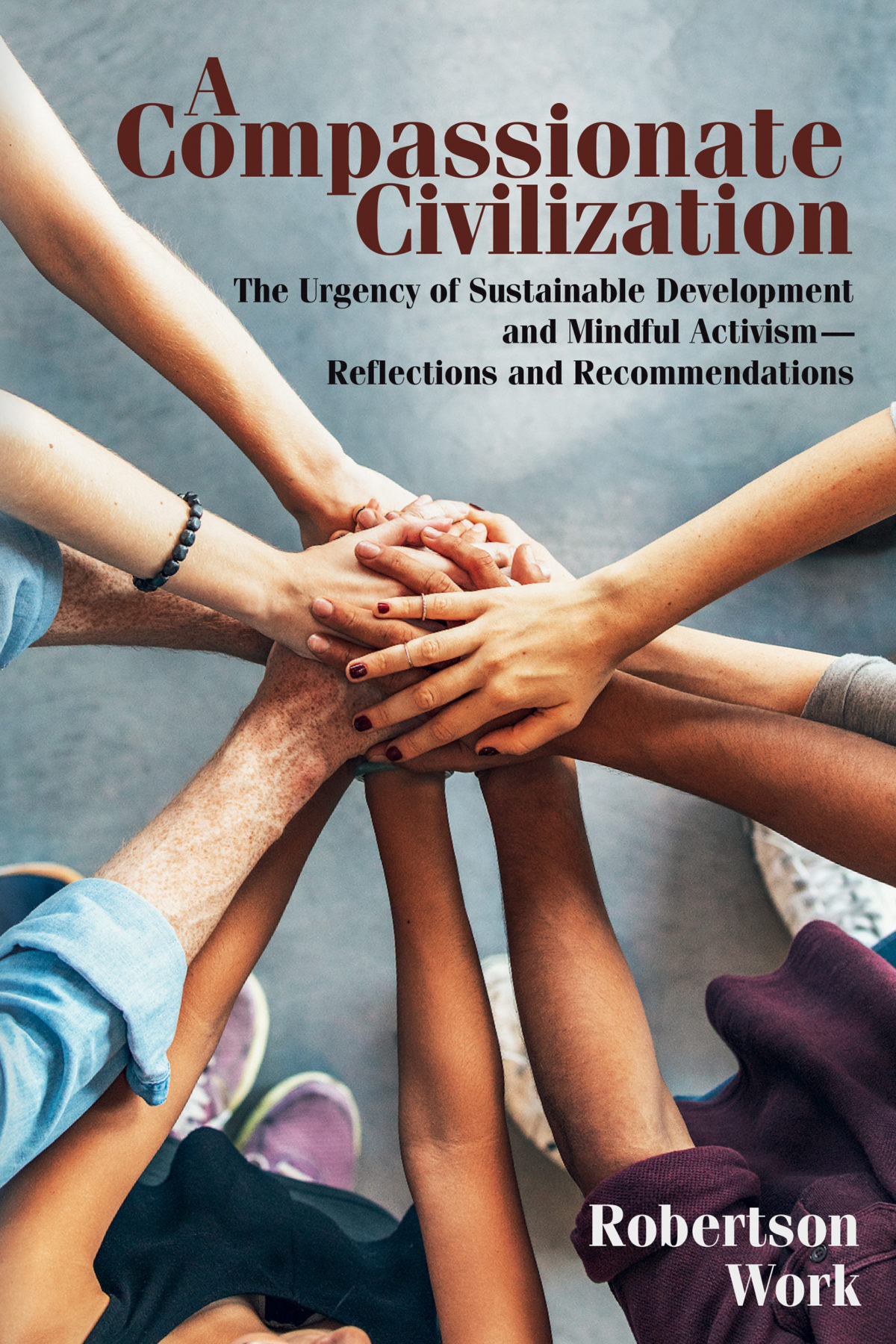
A Compassionate Civilization
The Urgency of Sustainable Development and Mindful Activism
by Robertson Work
CreateSpace, 2017
Paperback, 286 pages
Reviewed by Patricia Webb
United Nation consultant and New York University Wagner professor Robertson Work, Ancient Treasure of the Heart, offers this unique primer on mindful activism.

A Compassionate Civilization
The Urgency of Sustainable Development and Mindful Activism
by Robertson Work
CreateSpace, 2017
Paperback, 286 pages
Reviewed by Patricia Webb
United Nation consultant and New York University Wagner professor Robertson Work, Ancient Treasure of the Heart, offers this unique primer on mindful activism. As a student of Thay, he inspires us to examine the suffering of our time with eyes of compassion. He also calls us to awaken our imagination and see what’s possible. This book stands out in the number of questions it raises. Beginning with the question “What is a human being?” the author asks us to look at how the illusion of separation creates a social dystopia of pain. And with the question “What can I do in my sphere of influence to relieve suffering and create a better world?” he provokes our personal response. Throughout the book, we may ask ourselves about service in these times of no easy answers.
With clarity and eloquence, Robertson brings thirty-nine years of Buddhist practice to the task of illuminating six arenas of urgently needed transformation: environmental sustainability, gender equality, socioeconomic justice, participatory governance, cultural tolerance, peace, and nonviolence. He inspires the reader with pictures of innovative, mindful, compassionate leadership. His global stories of heartbreak and triumph are captivatingly real and confessional. As a United Nation Development Program policy advisor and change agent for half a century, Robertson has seen global suffering on the ground. His keen eye exposes how our fear and confusion slow, or even stop us, from confronting tough issues.
To unblock us, he shares a comprehensive and compelling global vision. He also sheds light on some of the effective programs, conscious communities, and movements that are making a difference now. The sections on strategic thinking, embracing change, and acting can help on our own Bodhisattva journey.
The last section of the book focuses on self-care, especially countering negative emotions by cultivating simple happiness and gratitude. Robertson shares daily practices that help him stay fresh and in service now in his 70’s—daily meditation, prayer, study, retreats, physical activity, nature, the grandkids, and acts of kindness. Every person who aspires to make a difference in these difficult times will find vision and practical guidance in this book.

